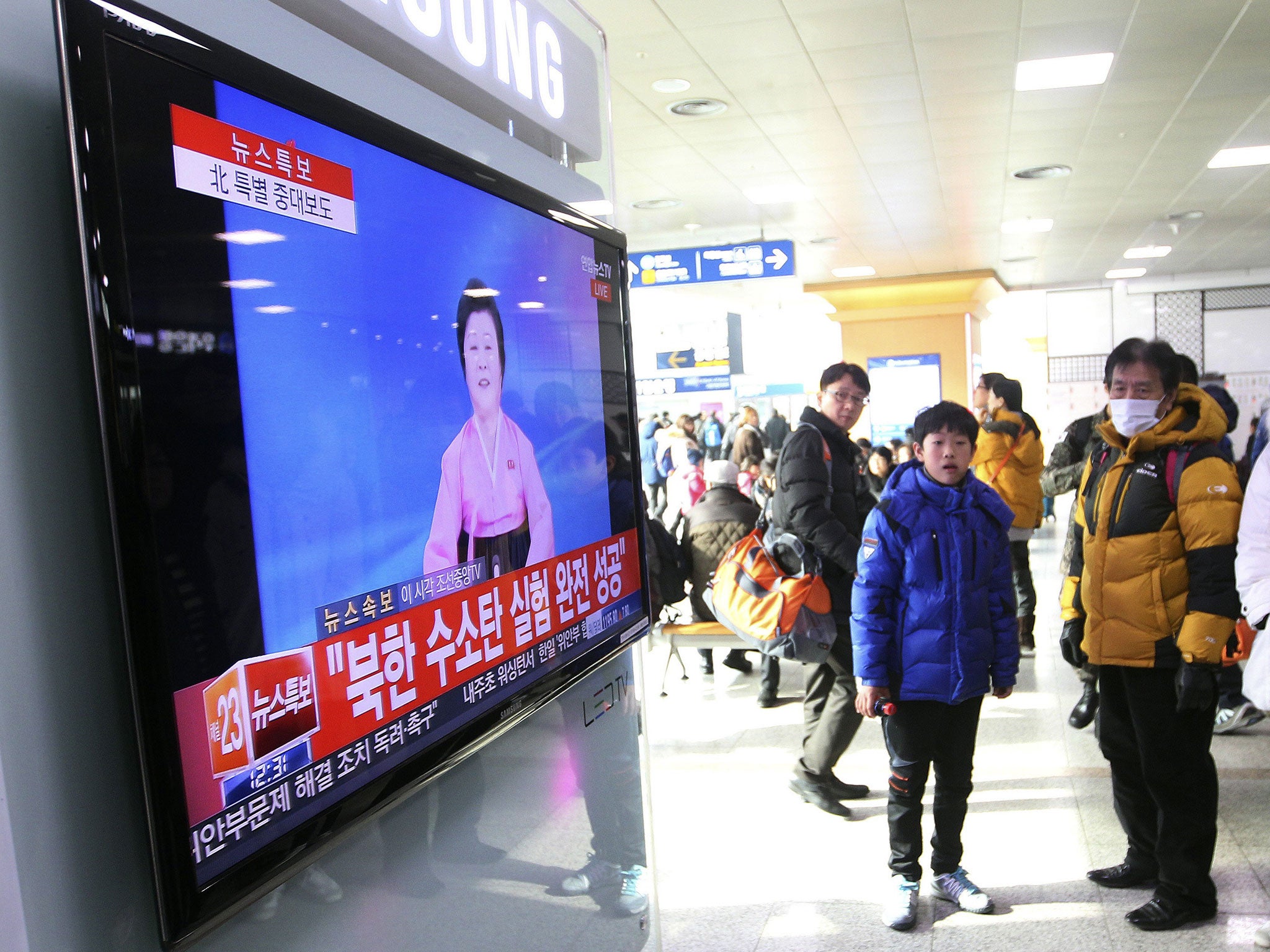North Korea hydrogen bomb test: White House reacts to claims
State Department spokesman says: 'We have consistently made clear that we will not accept [North Korea] as a nuclear state'

The White House has said it expects North Korea "to abide by its international obligations and commitments" after the isolated Asian nation announced it had successfully tested its first hydrogen bomb. Earthquake sensors worldwide detected a 5.1-magnitude seismic event close to the country’s Punggye-ri nuclear test site at around 10am local time. Shortly thereafter, the state-run television network announced that the test had been a "complete success".
Ned Price, a spokesman for the White House National Security Council, said in a statement that the US "cannot confirm these claims at this time," and it could take several weeks for America and its allies to determine whether the test was, as the Pyongyang regime claims, a hydrogen or thermonuclear bomb. North Korea has already conducted three nuclear tests since 2006, but thermonuclear devices are significantly more powerful than atomic bombs.
If the claims turn out to be true, it would escalate tensions between the volatile nation and its southern neighbour, not to mention the rest of the world. The state television announcer said Pyongyang had been "forced to develop its nuclear arsenal because of the US’s hostile policy against North Korea," adding that for the country to surrender its nuclear programme would be "as foolish as for a hunter to lay down his rifle while a ferocious wolf is charging at him."
Last year, the Obama administration succeeded in bringing the Iranian government to the table to sign an agreement limiting its nuclear capabilities. But the US has never managed to negotiate on the issue with North Korean leader Kim Jong-Un, who has refused to engage in talks to curb his country’s nuclear programme.
In pictures: North Korea hydrogen bomb test
Show all 15"We have consistently made clear that we will not accept [North Korea] as a nuclear state," John Kirby, a spokesman at the State Department, told the Washington Post. "We will continue to protect and defend our allies in the region, including the Republic of Korea, and will respond appropriately to any and all North Korean provocations."
Subscribe to Independent Premium to bookmark this article
Want to bookmark your favourite articles and stories to read or reference later? Start your Independent Premium subscription today.

Join our commenting forum
Join thought-provoking conversations, follow other Independent readers and see their replies